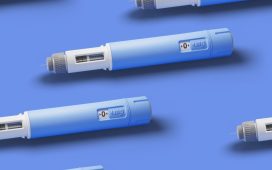Optimizer Smart system indicated for patients who are symptomatic despite optimal medical therapy
THURSDAY, March 21, 2019 (HealthDay News) — The Optimizer Smart system was approved for treatment of patients with chronic, moderate-to-severe heart failure who are not eligible for treatment with other heart failure devices, including cardiac resynchronization therapy, the U.S. Food and Drug Administration announced today.
The system includes an implantable pulse generator, battery charger, programmer, and software. The pulse generator is implanted in the upper left or right area of the chest and is connected to three leads implanted in the heart. After implantation, the physician tests and programs the device, which delivers electrical impulses to the heart during regular heartbeats.
The approval was based on data from two randomized, multicenter clinical trials of 389 patients with moderate-to-severe heart failure. All patients received optimal medical therapy, and 191 patients were also implanted with the Optimizer Smart system. Patients who received the device demonstrated improvement in walk distance during six-minute walking tests and also improved on standard assessments of heart failure symptoms.
The FDA says the Optimizer Smart system is indicated to improve six-minute hall walk distance, functional status, and quality of life in heart failure patients whose physical activity is limited and who are symptomatic despite optimal medical therapy. To be eligible for the device, patients must have a regular heart rhythm, not be candidates for cardiac resynchronization therapy, and have a left ventricular ejection fraction of 25 to 45 percent. Potential complications with the device include infection, bleeding, worsened heart failure, or dislodgement or fracture of the leads implanted in the heart.
Approval of the Optimizer Smart system was provided to Impulse Dynamics. The device was granted Breakthrough Device designation because it treats a life-threatening disease and addresses an unmet medical need for patients who do not benefit from standard treatment.
Copyright © 2019 HealthDay. All rights reserved.








